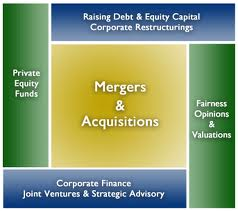FEMI TAIWO: SECRETS OF WINNING AT WORK

STRATEGY WITH FEMI TAIWO ON MONDAY
Michael is a first class chemical engineering graduate of Obafemi Awolowo University, Nigeria, and a PhD holder in same discipline from the University of Arkansas, United States. He works in a multinational energy giant in the United States.
Secrets of Winning at Work: Recognize the different nature of work
Work is generally divided into three types: grunt work, value-added work and personal initiative. It is important to realize the defining characteristic of each type in order to maximize productivity and excel at work. This will serve you well in your career.
It should be noted at the outset that no one will divide your work responsibility into these three categories for you. Your boss will not come to you and say, “Hey, I have 10 things for you to do, this one and that one are ‘grunt work’, this and that are ‘value added’ and the last is ‘personal initiative.’” No, it won’t happen. You are just assigned a list of job tasks and expected to figure it out.
The ability to correctly classify work and deal with each category accordingly is what separates the best from the rest. It is why some people get all the awards and recognition and others get shown the way out. It is why some always get the job done with less stress and more time to spare and others can’t just keep their head out of water. It is the difference between success and failure; commendation or condemnation; master of work or slave to work.
Grunt Work
Whether you are an office worker, a stay at home parent, an athlete, a farmer, a student, a doctor, a manual laborer or self-employed, some of your responsibilities will feel like grunt work. By grunt work we mean repetitive, tedious, back breaking, boring jobs.
If you think of all that you do as an iceberg, grunt work is what lies below the surface. Doing grunt work well neither wins you awards nor gets you noticed but it is what the company is really paying you for. It is also called asymmetric work in the sense that when you do it well nobody notices but if you do it wrong everybody complains. Because of the nature of this work most workers focus their attention and energy on doing it well and few ever rise above that. It is often why people complain that they work hard but hardly get noticed. It’s not office politics it’s the nature of the beast. Doing grunt work well won’t get you noticed. You have probably never bought a gift for the janitor who cleans your toilet, have you? But the day he fails to clean, you will probably quickly let him know! Let’s face it: grunt work is pure work. For some lucky folks, it is enjoyable but for the rest of us, it is no fun. It is what you have to do, it comes with the territory.
Value Added Work
The more challenging part of your work; the part that cannot be easily delegated to a junior officer, outsourced to a cheaper firm or automated by a computer is what we refer to as Value Added work. Value Added work tasks your brain and requires you to bring a considerable measure of your skills and personality to accomplish the job at hand. Value added work may or may not be exhilarating but it definitely isn’t as enervating as grunt work. It is work that allows you to stamp your mark and display what you can do. It allows you to show your uniqueness – why you are you and no one else. Value added work makes you valuable. The company needs value added work to be competitive hence value added workers have greater job security. Doing value added work well gets you the plaudits. It makes you visible. The company actively seeks and promotes those who add value.
If you are not sure whether your work is perceived as a value added work or not, it is time to have a conversation with your manager. For example, you can ask “What is your vision for this team and how can I help achieve that?” I assure you the answer won’t be filling forms and checking boxes!
Personal Initiative
Every work you are given will be either grunt work or value added in nature. Personal initiatives, however, are work you give yourself. They are not handed down to you by your supervisor. Personal initiatives are your own creation. This is a step above value added work. Personal initiative work bears your very autograph. It carries your DNA because it is your brainchild. Taking personal initiatives makes you invaluable. It moves you from an above average worker to the top of the pack. It makes work freeing. Strictly speaking, it makes work feel not like work but fun. It is the most rewarding work.
Personal initiative can be a pet project. Google for instance is noted for giving employees 20% of their time to work on pet projects. The very best companies do this. If you are not in Google, still realize that very best workers make time available to create. This is what will distinguish you–creating work of value–a work that no one gave you but you knew would add value so you went ahead and did it anyway.
Personal initiative can also be how you do your work. How did you go about completing your value added work? What behaviors did you demonstrate along the way? This is important because depending on the circumstances, you may not always be able to add new products from pet projects but no matter the job, you can always create ways to make it easier, faster or more profitable. Creating a better process is every bit as valuable as making a better mouse trap.
Conclusion
We have now seen that work is just not work but in fact separates into three distinct classes: repetitive and tedious work or grunt work; value added work and personal initiatives resulting in the creation of a new process or a new product. Why is this important? The next few articles will show.
****
For more articles on careers and mentorship, subscribe to JarusHub
[subscribe2]
Established in March 2013, JarusHub is a Nigerian information hub with focus on career and management. It is rated Nigeria's most authoritative destination for online career resources. It parades an array of Nigerian professionals who share their career experiences with a view to bridging career information gap and mentoring a generation to success. Whether you're a student, a recent graduate or an established professional, or even an executive, you will always find something to learn on JarusHub. All enquiries to jarushub@gmail.com or 0808 540 4500. Facebook: www.facebook.com/jarushub; Twitter: @jarushub or @mcjarus.
Career Q&A with Jarus: Oil & gas career, poor CGPA
September 17, 2023What is Career Counselling? How to choose the Right Career?
October 24, 2022Career Advice: Play to Your Strength
March 6, 2022
1 comment
Let us have your say by leaving a comment belowCancel reply
Recommended For You
-
Tips for Surviving away from home during Forex scarcity
November 9, 2016 -
CROSSROADS: A “BIG 4” OR A SMALL IB?
May 18, 2015 -
Top 7 Tips on Career Advancement
July 6, 2015






This article is educative